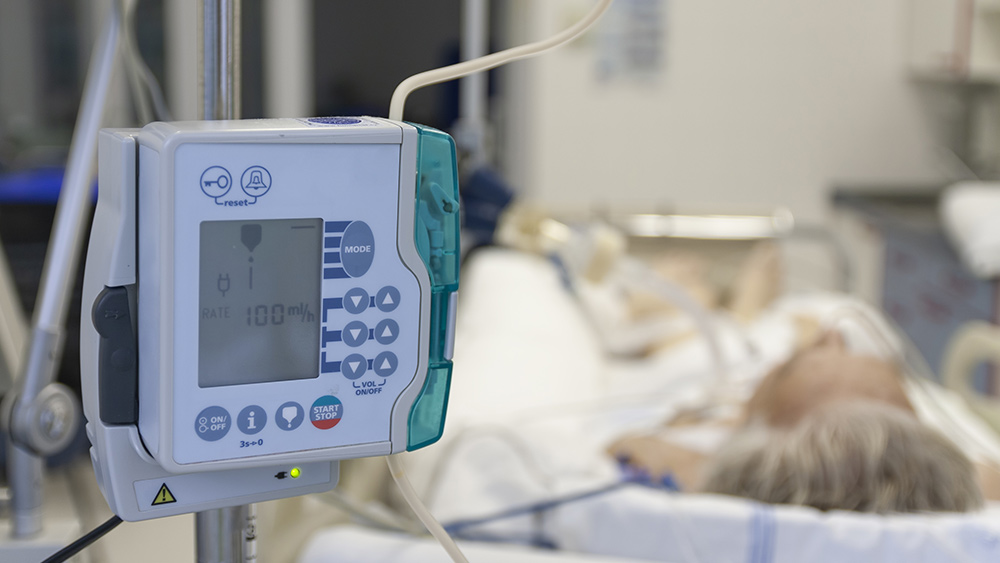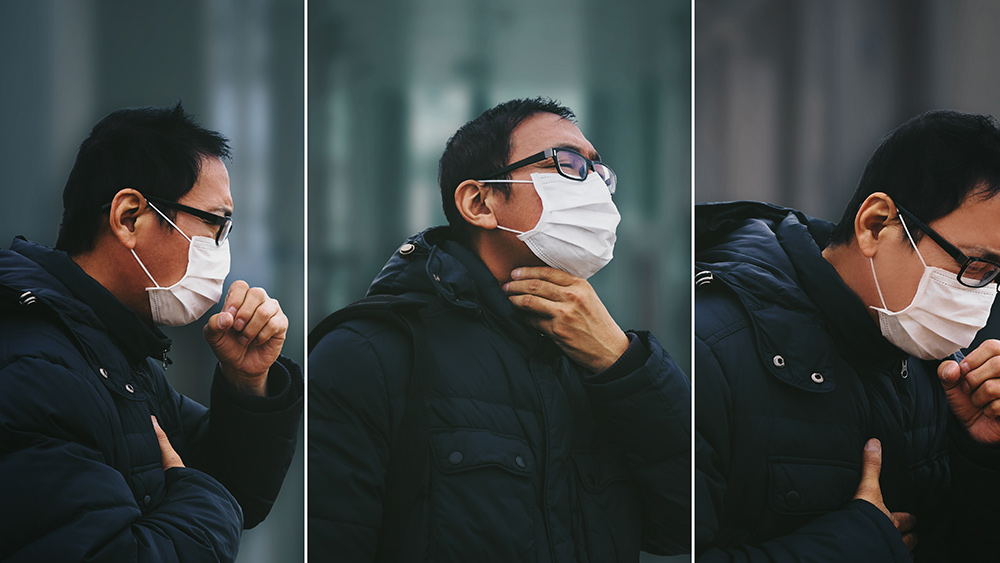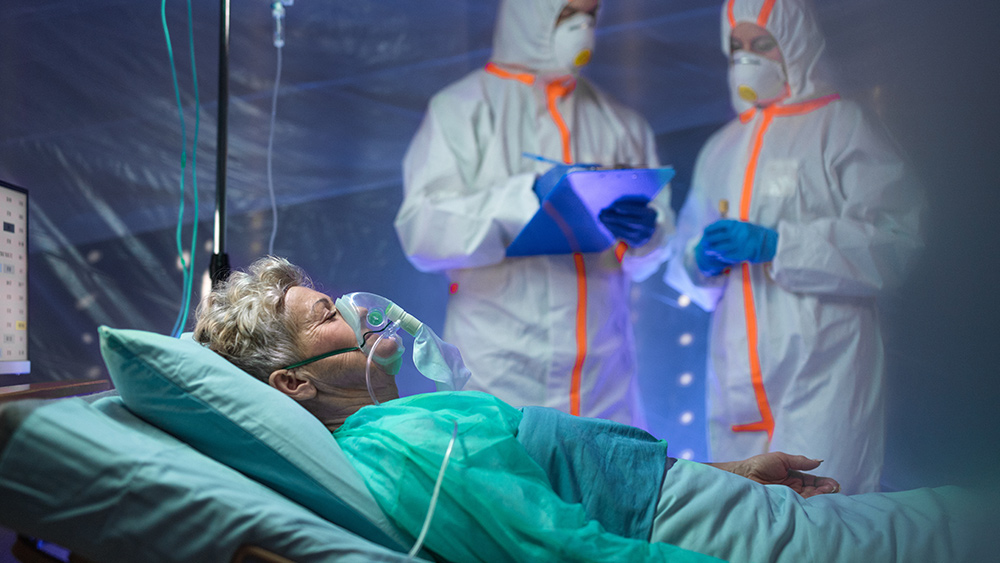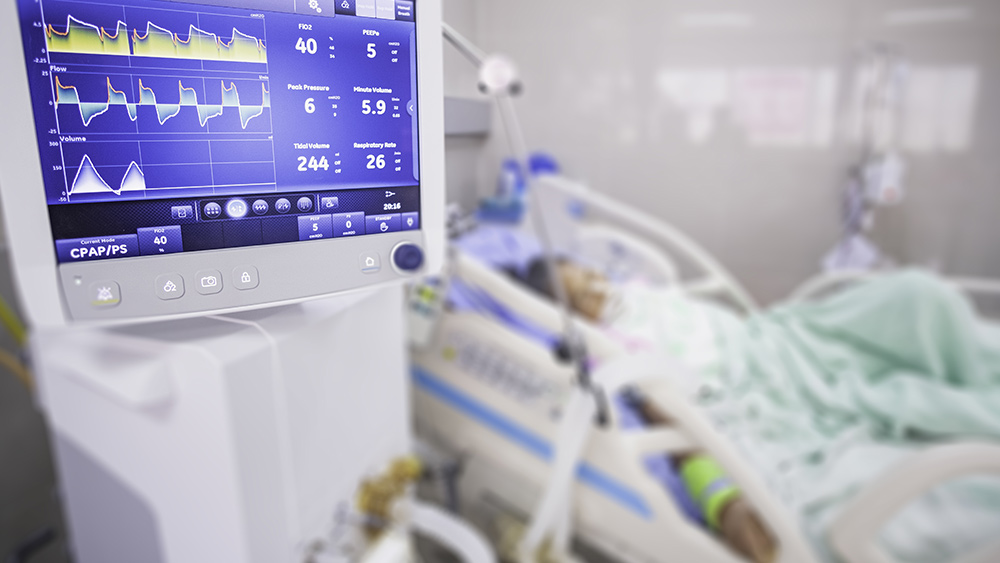UK hospital MELTS face masks to deal with coronavirus-related waste
10/06/2021 / By Arsenio Toledo

A hospital in the United Kingdom is melting face masks as a way of dealing with significant amounts of medical waste due to the Wuhan coronavirus (COVID-19).
It is estimated that the world uses up to 129 billion single-use face masks every month. Millions of these plastic face coverings end up in the trash. (Related: Face masks are adding to plastic pollution, and its effects are seen across Asia.)
The Royal Cornwall Hospital in southwest England has reported that it’s only using 300 face masks a day before the pandemic. This face mask use was mostly confined to the 760-bed hospital’s operating rooms.
“And then COVID struck and that increased to 10,000 a day,” says Roz Davies, a manager for the National Health Service (NHS) trust that manages Royal Cornwall.
To deal with the thousands of face masks the hospital uses up per day, Royal Cornwall administrators has started using a machine that can reach temperatures of up to 600 degrees Fahrenheit to melt the masks down.
The hospital has assigned several workers to handle the disposal of face masks. These workers remove ear straps and the wire on top of the mask that sits over a person’s nose before placing the masks in the machine to be melted.
“Basically, it’s just like a giant oven, you know, it melts it all down and that makes one of the big blocks which then gets taken away and ground down into plastic granules and repurposed,” says Tanya Cowling, an employee at Royal Cornwall.
According to the NHS, these recycling ovens are used at four other hospitals in England and Wales. The health service hopes to expand this recycling program all across the country.
The material recycled from the discarded face masks can be turned into all sorts of things. Notably, a group of children from England have been using litter grabbers made out of masks to pick up trash in their neighborhoods.
“You can pick up a mask with these, that are made out of masks and I just think it’s really cool,” says one child interviewed by CBS Miami.
Reusable masks help cut down environmental waste
Experts from the Massachusetts Institute of Technology (MIT) estimate that up to 7,200 tons of face masks and other personal protective equipment are generated every day since the beginning of the COVID-19 pandemic. This means that the 10,000 masks recycled by Royal Cornwall every day barely make a dent in the waste produced.
In a study, researchers from MIT found that using reusable masks in hospitals could significantly decrease the financial and environmental cost of using face masks. They have found that just decontaminating regular N95 masks so that healthcare workers could keep using them after a day decreased costs and environmental waste by at least 75 percent.
“Perhaps unsurprisingly, the approaches that incorporate reusable aspects stand to have not only the greatest cost savings, but also significant reduction in waste,” says Giovanni Traverso, senior study author and MIT assistant professor of mechanical engineering.
Traverso and his colleagues are developing a completely reusable N95 mask that hospitals can use to cut down on waste. Their prototype mask is made of silicone rubber and contains an N95 filter that can either be sterilized or discarded and replaced after use. This mask is designed to be sterilized and reused multiple times.
“The majority of disposable masks also have a significant environmental impact, and they take a very long time to degrade,” says Traverso. “During a pandemic, there’s a priority to protect people from the virus, and certainly that remains a priority, but for the longer term, we have to catch up and do the right thing, and strongly consider and minimize the potential negative impact on the environment.”
Learn more about the effect the widespread use of single-use face masks has on the environment by reading the latest articles at Pollution.news.
Sources include:
Submit a correction >>
Tagged Under:
coronavirus, covid-19, environment, face masks, hospital waste, pandemic, products, recycling, reusable face masks, UK
This article may contain statements that reflect the opinion of the author
RECENT NEWS & ARTICLES
HospitalHomicide.com is a fact-based public education website published by HospitalHomicide.com Features, LLC.
All content copyright © 2021 by HospitalHomicide.com Features, LLC.
Contact Us with Tips or Corrections
All trademarks, registered trademarks and servicemarks mentioned on this site are the property of their respective owners.




















